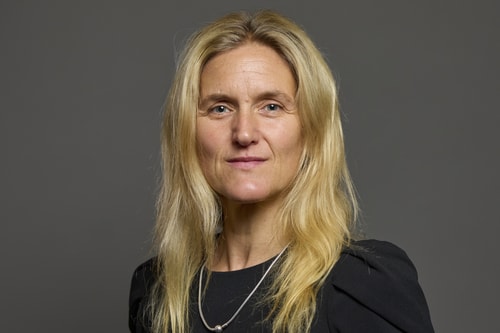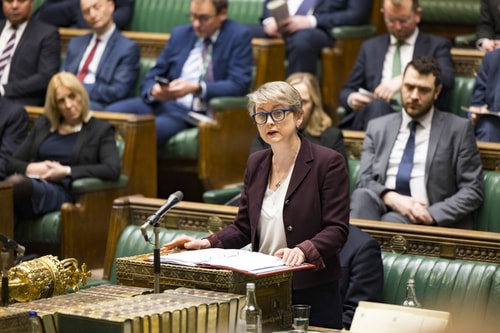
Alicia Edmund

Alicia joined the Evangelical Alliance as head of public policy in August 2021. Since then, she has worked on a range of issues from asylum resettlement, refugee integration, poverty relief and religious freedom in the UK and overseas.
Alicia leads the advocacy team’s parliament and Whitehall engagement and is focusing all legislative engagement this year on three core themes: dignity, freedom and justice.
Kim Leadbeater replaces High Court judge with assisted dying review panels
25 February 2025Backbench Labour MPs are vocalising their concerns in response to Leadbeater’s U-turn
Read more...Education secretary outlines plans to restrict freedoms to home educate
12 February 2025Important read for parents and member organisations working with children and young people in England
Read more...Home secretary announces a £5 million fund to support locally led grooming gangs inquiries
29 January 2025A briefing on the government’s response to a national grooming gangs inquiry and proposed policy commitments to tackle all incidents of child sexual exploitation and abuse.
Read more...God has been faithful in 2024, and the advocacy team are believing for more breakthroughs in 2025
17 December 2024Learn how we have been a faithful witness in the corridors of power over the last 12 months
Read more...Parliament set to debate and vote on legalising assisted dying in England and Wales
12 November 2024The Terminally Ill Adults (End of Life) Bill will have its second reading on 29 November. Learn what’s being proposed and how to engage your local MP ahead of the debate.
Read more...New statutory duty to prevent sexual harassment in the workplace – here’s what you need to know
26 October 2024Guidance for churches, business and charities on the Worker Protect (Amendment of Equality Act 2010) Act 2023
Read more...Scotland’s abortion law review is well underway
20 September 2024The Scottish Government have commissioned a review on abortion laws – here's what you need to know
Read more...What does a Labour government mean for UK evangelicals?
9 July 2024Alicia Edmund, head of public policy, analyses the Labour Party manifesto and outlines what to expect for the next parliamentary
Read more...Three guiding principles for Christian women ahead of polling day
10 June 2024Alicia Edmund head of public policy, reflects on how our faith can help us discern which candidate to vote for and what will be influencing her vote this election
Read more...Why voting is a start but can’t be where our political engagement ends
22 May 202462% of evangelicals are unlikely to engage in local and national politics following the election.
Read more...Christian politicians share how faith impacts their work
20 March 2024At our recent leadership event, politicians spoke about the difference their faith makes to their life in parliament
Read more...










